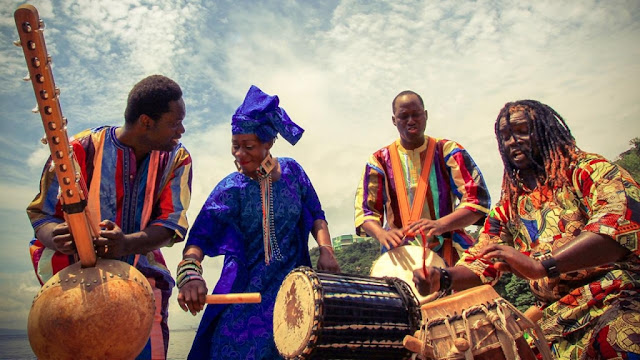Exploring the Sociocultural Factors Influencing Haitian People's Reluctance to Publicly Acknowledge Their Connection with Haitian Vodou
Exploring the Sociocultural Factors Influencing Haitian People's Reluctance to Publicly Acknowledge Their Connection with Haitian Vodou
Haitian Vodou, a spiritual tradition deeply rooted in the history and culture of Haiti, remains a powerful force shaping the beliefs, practices, and identities of millions of Haitians. Despite its significance and influence, many Haitian people choose to conceal their connection with Vodou, practicing in the shadows and avoiding public acknowledgment of their spiritual beliefs.
This paper investigates the sociocultural factors contributing to this phenomenon, exploring the historical context, social stigma, and religious syncretism that shape attitudes towards Vodou in Haitian society.
Drawing upon ethnographic research, interviews, and theoretical frameworks from anthropology and religious studies, this paper sheds light on the complex dynamics of identity, spirituality, and social acceptance within the context of Haitian Vodou.
Haitian Vodou, often misunderstood and misrepresented in mainstream discourse, is a dynamic and multifaceted spiritual tradition that plays a central role in the lives of many Haitian people. Despite its pervasive presence in Haitian culture, Vodou remains a source of stigma and discrimination, leading many practitioners to conceal their beliefs and practices from public view.
This paper seeks to explore the sociocultural factors underlying Haitian people's reluctance to publicly acknowledge their connection with Vodou, examining historical legacies, social perceptions, and religious syncretism as key influences shaping attitudes towards Vodou in Haitian society. By unpacking these factors, we can gain deeper insights into the complexities of identity, spirituality, and social acceptance within the context of Haitian Vodou.
Therefore to understand Haitian people's reluctance to openly embrace Vodou, it is essential to consider the historical context in which Vodou emerged and evolved. Haiti's history is marked by colonization, slavery, and revolution, with Vodou serving as a powerful tool of resistance and cultural preservation for enslaved Africans brought to the island.
However, the practice of Vodou was demonized and suppressed by colonial authorities and later by Christian missionaries, leading to the stigmatization and marginalization of Vodou practitioners in Haitian society. This legacy of persecution continues to shape attitudes towards Vodou, contributing to the reluctance of many Haitians to openly identify with the tradition.
In addition to historical factors, social stigma plays a significant role in shaping Haitian people's attitudes towards Vodou. Despite its widespread practice and cultural significance, Vodou is often portrayed negatively in mainstream media and popular culture, perpetuating stereotypes of witchcraft, superstition, and savagery.
As a result, many Haitians fear the social consequences of openly identifying as Vodou practitioners, including discrimination, ostracism, and violence. This fear of stigma leads many Haitians to practice Vodou in secret, away from prying eyes and judgmental attitudes.
Another factor influencing Haitian people's reluctance to publicly acknowledge their connection with Vodou is the phenomenon of religious syncretism, wherein elements of Vodou are blended with Catholicism and Protestantism to create hybrid spiritual practices.
While syncretism has allowed Vodou to survive and adapt in the face of persecution, it has also led to ambiguity and ambivalence regarding religious identity among many Haitians. Some individuals may identify as Catholic or Protestant in public while practicing Vodou in private, navigating the tension between social acceptance and spiritual authenticity.
In conclusion, Haitian people's reluctance to publicly acknowledge their connection with Vodou is influenced by a complex interplay of historical, social, and religious factors. The legacy of persecution, social stigma, and religious syncretism all contribute to the concealment of Vodou beliefs and practices among many Haitians, despite the tradition's pervasive influence in Haitian culture.
Meanwhile by unpacking these factors, we can gain a deeper understanding of the challenges faced by Vodou practitioners in Haitian society and work towards promoting greater acceptance, tolerance, and respect for this rich and vibrant spiritual tradition.







Comments
Post a Comment